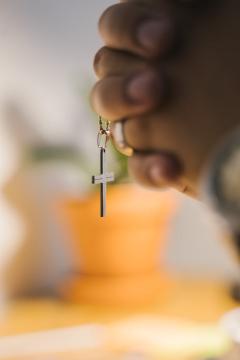The zeal of God for all souls is often manifested in His special love for the poor. At his birth Jesus was laid on grass and at his death a tomb had to borrowed for his burial. “Behold your king comes to you; triumphant and victorious is he, humble and riding on a donkey…” (first reading). The prayer of the poor echoes a symphony of absolute dependence and reliance on God.This is why God does not despise the prayer of the humble and contrite heart (cf. Psalm 51). In actual fact, greatness needs no trumpet and goodness needs no advertisements.
Sometimes God allows us to experience hardship so that we can identify with the down-trodden and draw closer to God by being kind and generous to them.
The Old Testament is replete with stories of God’s "Anawim”. Anawim is a Hebrew word which means those who are bowed down. The very posture of the poor supposes they do not rely on themselves. Many people do not feel the need for God because they can do everything for and by themselves. Jesus speaks directly to this deadly culture by asking us to learn from him. Let us challenge ourselves by learning to become more tolerant and courageous. The old saying goes “courage is fear that has said its prayers”. Let us make ourselves poor in the flesh and rich in the spirit by making the words of St. Basil of Caesarea 330-370 AD our own:
“The bread in your cupboard belongs to the hungry man; the coat hanging in your closet belongs to the man who needs it; the shoes rotting in your closet belong to the man who has no shoes; the money which you put into the bank belongs to the poor. You do wrong to everyone you could help but fail to help.” Why does the sight of poor people irritate us?
A blessed Sunday to you all!
Fr. Samuel Madza, SMA


